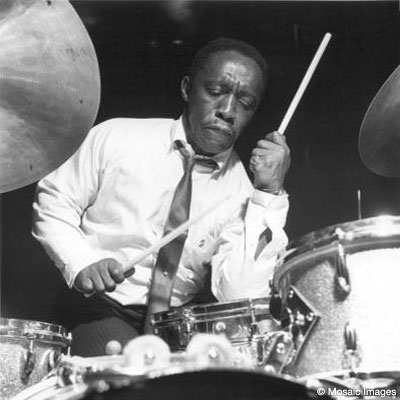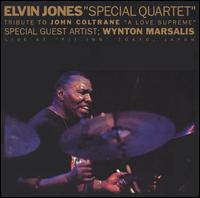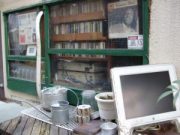Introduction
Exploring the jazz scene in Tokyo takes some persistence. It’s easy to stick to the well known world famous clubs, but then you’ll miss the real essence of what makes the jazz life here so special. Many of the most atmospheric joints are located on small back streets, lost in a jumble of noodle shops and ugly concrete office buildings. Be ready to walk a bit and get lost before finding a place, it’s worth the adventure as you’ll find yourself in some of the most memorable jazz spots in the world.
Jazz establishments profiled on this site fall into one of three categories, Bars, Cafes and Clubs. Read more in each section about them but remember, you can sometimes catch live music at ANY of these places. A lot of cafes function as bars at night, and even the smallest counter-bars sometimes can have live events (with club prices). Even regular jazz clubs can open for ‘cafe time’ on specific days. If possible it’s always a good idea to call ahead or check the website for what’s going on before you get there.

Jazz Bars
Tokyo jazz bars are plentiful and almost uniformly wonderful. They are often insular places, a world created by the owner according to his or her own tastes. There are bars that play all genres of jazz and bars that play only one style. The record collections in many of these places are astounding; one of my old regular hangouts, Jazz Pub Michaux in Shinjuku 3-Chome, featured nothing but hard-bop and soul jazz with over 2000 original albums in a tiny bar that could seat only 8 people max. Tokyo jazz bars are places to listen and learn about music, libraries where you can drink.
A lot of places will be filled with regulars but even if you don’t speak Japanese, and most jazz bar owners and patrons cannot speak much English, they will still welcome you with at least some simple chat about the music. If a place is tagged as a “Bar” then it will generally only be open at night..but be flexible with the posted opening hours and days off of all these places, they are not Starbucks and often open at the whim of the owner..it’s the jazz world, be ready to improvise.
And bring cash money with you. Tokyo jazz bars are not very cheap as the seating/table charge will be anywhere from ¥500 (US$5) and up, sometimes as high as ¥1500, with drinks starting from ¥800 (US$7); budget about US$50 in cash just in case you decide to have a couple of drinks, and remember that most these spots will not take credit cards.
Live charges will generally be about ¥3000 (US$30) and up at the smaller bars, depending on the event. You don’t tip in Japan so think of the seating/table charge as your tip. Remember, these are very special places where you can hear a LOT of rare records. The $50 you spend there helps keep these places open in a very unprofitable environment.
Jazz Cafes
Kissaten (喫茶店) in Japanese simply means coffee shop (literally ‘tea room’, but think of it as a regular coffee shop). Every neighborhood in every city of Japan has at least two or three old ‘kissaten’ that serve morning toast and coffee or tea, and often simple lunches. These are gathering spots for locals to chat, smoke and drink.
‘Jazz kissaten’ (Jazz cafes) are a subset of the extensive local cafe culture in Japan. They sprung up in the 1950s and 60s when imported records in Japan were quite expensive, if available at all. Young jazz fans could go to these cafes, order one drink and then spend hours listening to the latest records as they planned riots against the government (Japan was like that back then). There were hundreds of these places all around the country and they played a huge part in making Japan the jazz-loving nation that it is as these customers got older and became more respectable members of society. I’ve met dozens of older ‘salarymen’ in these cafes who talk lovingly of their college days as they listened to jazz, chased girls and ran from the riot police on their college campuses.
Jazz kissaten have varied opening hours with some closing early and others open until the late evening. The larger ones offer light snacks, and almost all will serve at least beer and whisky, if not a more extensive alcohol menu. Most will have a large vinyl and CD collection behind the counter reflecting the owners individual tastes. The decor in these places is consistent; old, dark, photos and album covers on the walls, old jazz magazines in the cabinet for browsing. There usually is no ‘table charge’ during the day but may be one from 300-500Yen at night. It is common to sit with just one or two coffees and spend the entire afternoon immersed in record after record, usually on a superb audio system
Jazz kissa are the most special jazz joints in Japan, a local manifestation of jazz culture that exists nowhere else in the world. At their height in the 1970s there were over 400+ jazz kissaten around the country, though sadly many have closed throughout the years so visit them while you still can.
Note: The older jazz kissaten can be very cramped, and VERY smoky with poor ventilation, and many international visitors may find them uncomfortable. Look through the directory here for Non-Smoking shops, of which there are an increasing number as smoking becomes less common in Japan.
For Japanese readers, look for the book by Murai Koji `ジャズ喫茶に花束を or Mike Molasky’s 戦後日本のジャズ文化 for more on thie history of jazz kissaten.

Jazz Clubs
Jazz clubs in Tokyo are like bars, plentiful and multi-genre. Because you can hear live music at even the smallest of cafes in Japan, I’ve tagged a place as a “club” only if their main function is to put on live music on a nightly basis. There will generally be a seating charge from ¥3000 and up, with the option for food and drinks. Sizes vary but be prepared to have about 3 inches between tables and very little leg room at most of these places.
A lot of clubs (and their twin-sister “live houses”) feature standard quartets or quintets, with weekly jam sessions. Be sure to check beforehand about the scheduled gig as many small clubs here feature “lite” or “latin” vocalists nightly..unless you really adore hearing the same old standards or “Smooth Jazz” then I recommend you stay away from those. Websites will generally give a description of the music and you can always call and ask if necessary.

Jazz Record Shops
Jazz record shops here will bankrupt you, it’s that simple. Tokyo is legendary for attracting jazz collectors from around the world. Whether it’s rare vinyl, Japan-only reissues or Live in Tokyo albums, whatever you are looking for you can find it here.
The challenge is finding the shops! They are spread around town, and many smaller used places do not have English language websites, though they may answer in English if you tweet them. If you are based in Tokyo then you can take the time to go exploring, using word-of-mouth and local maps to help you out. If you are just visiting then it’s best to stick to the bigger shops like any of the Disk Union branches.
One recommendation; If you see a little music shop, or even a small cd-section in a video store, ALWAYS check it out. Even more so than in the US, you will find hidden jazz gems in the most unlikely of places. One of my greatest jazz memories is of popping into my local video store on my birthday in 1998. On a whim I started browsing through their small cd rack, and inbetween the J-Pop and Mariah Carey Xmas albums was a used copy of Elvin Jones’ “A Love Supreme: w/ Wynton Marsalis, Live at the Pit Inn in Tokyo”..a very nice birthday present that I still treasure.











